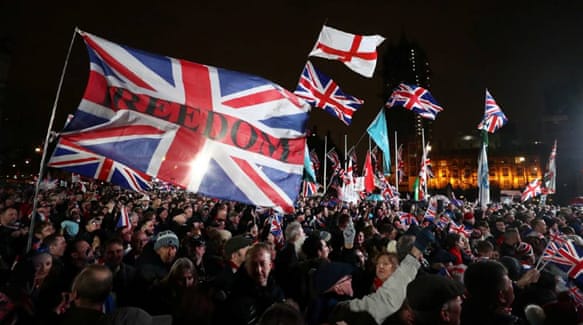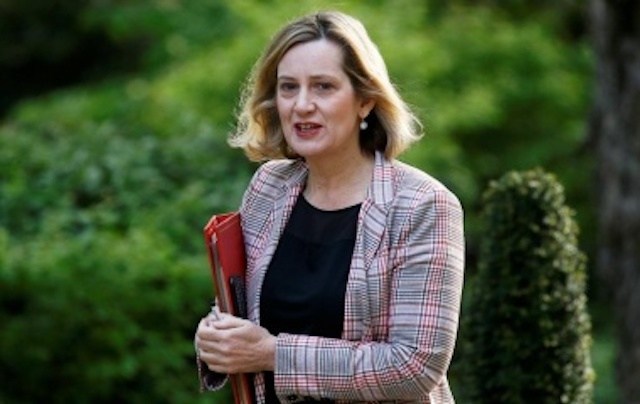Prime Minister Boris Johnson hailed an “astonishing moment” as Britain formally left the European Union (EU) after 47 years on Friday, saying his government had “obeyed the people” who voted for Brexit in a 2016 referendum.
“For many people this is an astonishing moment of hope, a moment they thought would never come,” Johnson said in a recorded speech.
The speech was broadcast via his Facebook account one hour before Brexit became official at 11 pm (2300 GMT), or midnight in Brussels.
“And there are many of course who feel a sense of anxiety and loss,” Johnson added.
“And then of course there is a third group – perhaps the biggest – who had started to worry that the whole political wrangle would never come to an end.
“We have obeyed the people [who voted for Brexit in a 2016 referendum,” he said, adding: “We have taken back the tools of self-government.”
Johnson and the European Union’s top officials earlier pointed to new opportunities ahead after Brexit.
Thousands of eurosceptics gathered to celebrate Brexit Day in London and other cities, rivalled by smaller groups of pro-EU activists in some areas, but most British people were not expected to mark the date.
A light show and other events organized by Johnson’s Conservative government at Downing Street was outshone by a nearby “Brexit Celebration: Countdown to freedom” event fronted by veteran eurosceptic and Brexit Party leader Nigel Farage in London’s Parliament Square.
In Brussels earlier, European Commission President Ursula von der Leyen, European Council President Charles Michel and European Parliament President David Sassoli said Saturday would mark a “new dawn for Europe.
The bloc’s remaining 27 member sates will “continue to join forces and build a common future,” they wrote in an op-ed for several European newspapers.
Leaders across Europe expressed similar sentiments.
German Chancellor Angela Merkel said Brexit was a “deep cut for us all” but underlined that the remaining EU members would continue to do everything necessary to move forward.
Brexit is “a historic alarm signal that must sound in all our countries, that must be heard by all of Europe and make us reflect,” French President Emmanuel Macron said.
Irish Prime Minister Leo Varadkar expressed his thanks for the “enormous solidarity from our European partners.” His country, which shares a land border with Britain in Northern Ireland, is the EU state likely to be most affected by Brexit.
“Today is a very sad day. People in the north did not consent to Brexit,” Mary Lou McDonald, leader of Irish republican party Sinn Fein, said as she joined a border protest.
“This is not something that people on the island of Ireland want, bar a small minority,” McDonald said.
After Brexit, little will change in practice during an 11-month transitional phase, as the two sides seek to negotiate a future relationship spanning trade, security and political cooperation.
Officials in Brussels warn that the timeline is extremely ambitious, but Johnson has ruled out an extension.
Fifty-two per cent of voters across the United Kingdom chose Brexit in 2016, but there were majorities for remaining in the EU in Scotland and Northern Ireland.
Scottish National Party leader Nicola Sturgeon, who leads the devolved regional government, insisted on Friday that Scotland is being withdrawn from the EU against its will. She demanded a referendum on independence.
Opinion polls suggest that 53 per cent of people across the United Kingdom now support the country remaining in the EU, said John Curtice, a political scientist at the University of Strathclyde.
Johnson’s predecessor, Theresa May, was among the many Conservatives who welcomed Brexit Day.
“After more than three years, we can finally say that we have delivered on the result of the 2016 referendum and have kept faith with the British people,” tweeted May, who resigned after lawmakers had rejected her Brexit deal three times.
Opposition Labour lawmaker David Lammy said Brexit was a “national tragedy.”
“I oppose it today for the same reasons I have always opposed it,” Lammy wrote. “Brexit is a con. A trick. A swindle. A fraud.”



